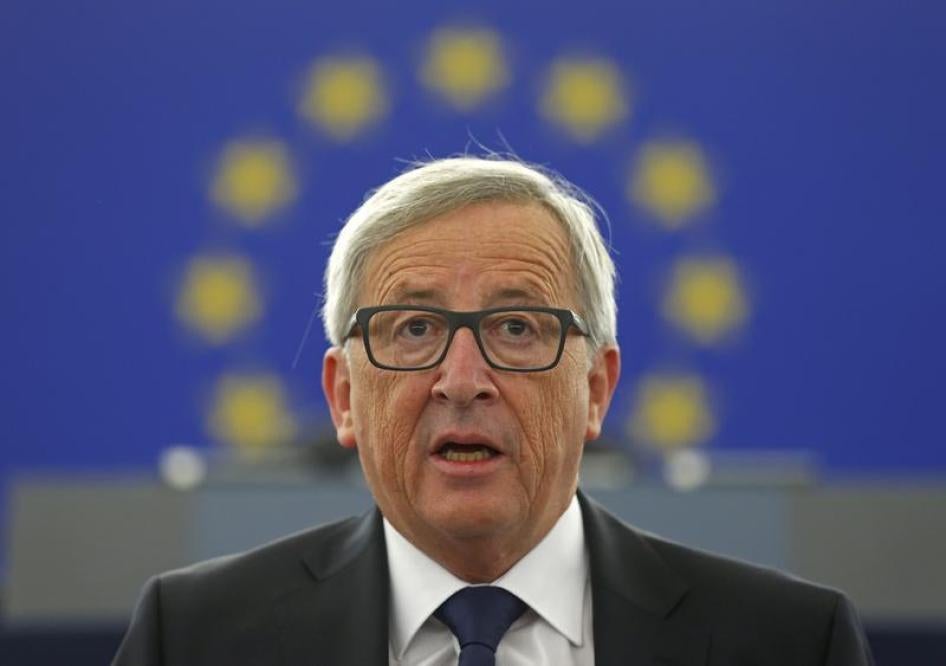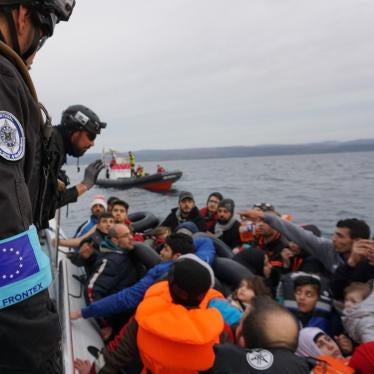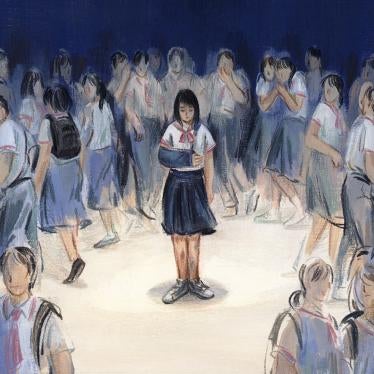“It is a matter of humanity and human dignity, and for Europe, of historical fairness,” said European Commission President Jean-Claude Juncker, who this morning devoted almost an hour of his State of the Union address to the European Union’s refugee crisis.
Juncker spoke frankly. He called on EU leaders to remember Europe’s history of mass immigration and forced displacement. He emphasized that the right to asylum is fundamental. He called for leadership: “We should be clear and honest with our often worried citizens” that the numbers of people arriving are impressive, but can and should be manageable. He put the number of migrants and asylum seekers arriving so far this year at almost 500,000, although the United Nations refugee agency’s numbers are somewhat lower.
Beyond the lofty rhetoric, Juncker outlined policy responses. Most concretely and immediately, he called on EU interior ministers to approve, in an upcoming extraordinary summit, a compulsory emergency scheme to relocate 160,000 asylum seekers from Greece, Italy, and Hungary. This could help some asylum seekers attain decent accommodation in other EU countries, where their applications could be examined. It would also alleviate the pressure on these three EU border countries, which are struggling under the influx of asylum seekers. Given the large number of arrivals in Greece and Hungary, 160,000 is likely to be insufficient. But it is also ambitious given the poor response of EU governments to an earlier call to relocate 40,000, with pledges reaching only 32,000. EU governments should do better this time.
Juncker advocated a permanent relocation mechanism to deal with such emergency situations in the future. This is vital to address the inequities resulting from the EU’s flawed Dublin regulation, which can trap asylum seekers in the first EU country they reach and has contributed to the capacity problems in Greece and Hungary.
In the long term, Juncker listed needed steps, including commission enforcement of EU standards and laws on asylum, increased refugee resettlement, and opening more safe and legal channels for migration. All of these steps are vital, as is reform of the Dublin regulation. Inevitably, Juncker’s speech had some elements likely to be more popular with member states: those focused on border enforcement, aid to regions of origin, and safe countries (the latter an inherently problematic concept).
Above all, though, Juncker’s speech was a call for more leadership and humanity in response to the refugee crisis. “Pushing boats back from piers, setting fire to homes, turning a blind eye to poor and helpless people – that is not Europe.” Bakers on the Greek island of Kos giving out bread and welcoming crowds in Munich and Vienna – that is the Europe Juncker envisions and to which its leaders should aspire.










